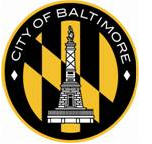Mayor Scott, City Council President Introduce Legislation to Codify Language Access Policy
Monday Sep 16th, 2024

FOR IMMEDIATE RELEASE
BALTIMORE, MD (Monday, September 16, 2024) - Today, Mayor Brandon M. Scott pursued groundbreaking legislation to codify Baltimore City's Language Access Policy and further solidify the City's commitment to language access for all residents.
Introduced by Council President Mosby on behalf of the administration, Bill 24-0584, seeks to codify the City's commitment to equity, diversity, and the well-being of its immigrant population by ensuring information and services are available to speakers of all languages. The proposal reflects Mayor Scott's unwavering dedication to creating a more equitable and welcoming environment for all residents and to a responsible stewardship of the City's resources to serve all those who live, work, and spend time in the City.
"As part of our commitment to equity, my Administration works tirelessly to foster a Baltimore that welcomes and serves all residents, including New Americans," said Mayor Brandon M. Scott. "Ensuring language accessibility not only fulfills our legal obligation to provide access to Limited English Proficient residents, but it also improves the City's response to the needs of our growing immigrant communities. Baltimore is stronger and more beautiful because of the vibrancy of our immigrant communities, and we will continue to govern in a manner that values and embraces them."
Baltimore City is home to almost 57,000 individuals (10.3% of the city's population) who speak a language other than English at home, and over 20,000 of those individuals speak English less than - 'very well.' These individuals are Limited English Proficient (LEP), meaning that they do not speak English as their primary language and have limited ability to speak, write, or understand English. Currently, the top five languages spoken by LEP individuals in Baltimore are: Spanish or Spanish Creole, Arabic, Chinese (inclusive of Cantonese and Mandarin), French, and Korean.
LEP individuals bring diverse perspectives, skills, and experiences that enrich our City, but they also face unique challenges as they navigate City services. Not only are they navigating the challenges of a new culture and home, but the limited availability of information in their languages presents a barrier to learning and acclimating to a new environment.
Since 2018, the Mayor's Office of Immigrant Affairs (MIMA) has worked with more than 15 federally assisted City agencies to achieve compliance to ensure that LEP individuals in Baltimore are able to access all essential City services. Established in 2014 and codified in 2024, MIMA has served as a hub for technical assistance, immigrant support, civic and community engagement, information, resources, and advocacy.
"In the 60 years since the passage of the Civil Rights Act of 1964, Baltimore City has worked hard to demonstrate its unwavering commitment to promoting equality and justice for all," said Catalina Rodriguez, Director of MIMA. "This legislative proposal builds upon the ongoing legacy of our city to advance the rights of all Baltimoreans, including speakers of other languages who have chosen to call our city home."
Key features outlined in the legislative proposal include:
- Designates MIMA as the office responsible for coordinating the implementation of and monitoring compliance with Baltimore City's Language Access Policy;
- Defines covered entities, meaning the government offices, departments, and entities, that will be required to comply with local language access requirements;
- Solidifies the City's responsibility to overcome language barriers experienced by LEP individuals when seeking services;
- Establishes the steps the City will take to provide LEP individuals with meaningful access to services;
- Defines the purpose and contents of language access plans that will be created and implemented by covered entities, in consultation with MIMA; and
- Requires covered entities to file an annual report with MIMA.
Baltimore City residents, advocates and organizations interested in this proposal are encouraged to participate in the legislative process. For more information about the bill or to voice your support, please visit Legislative Process | Baltimore City Council.